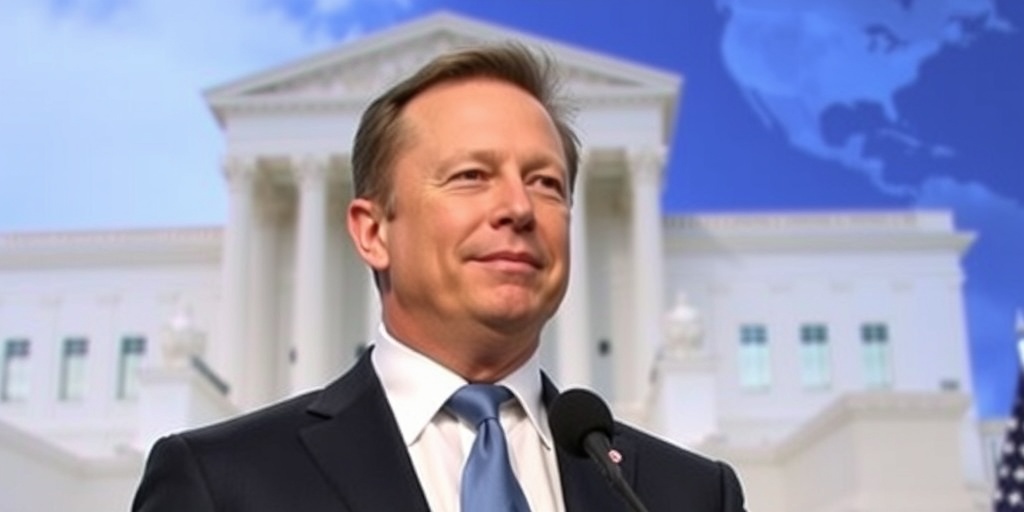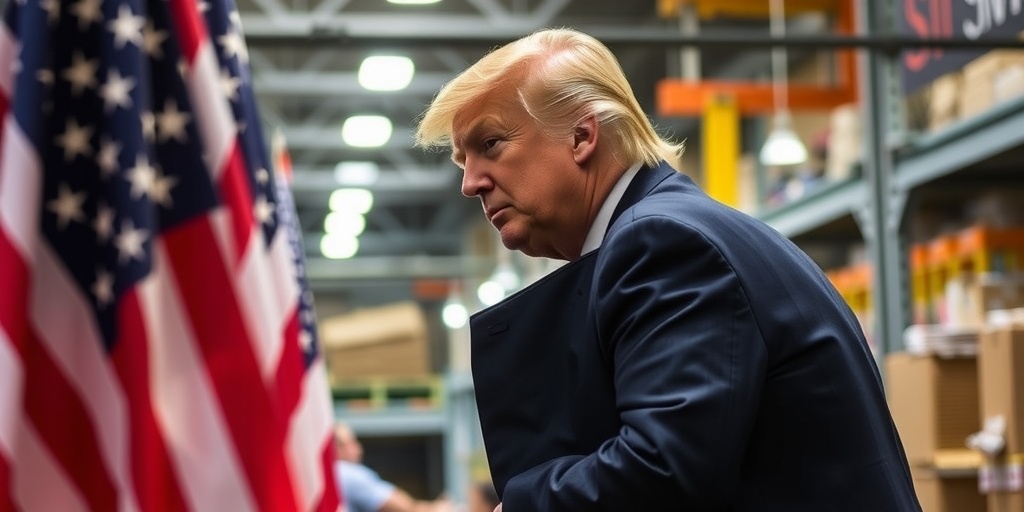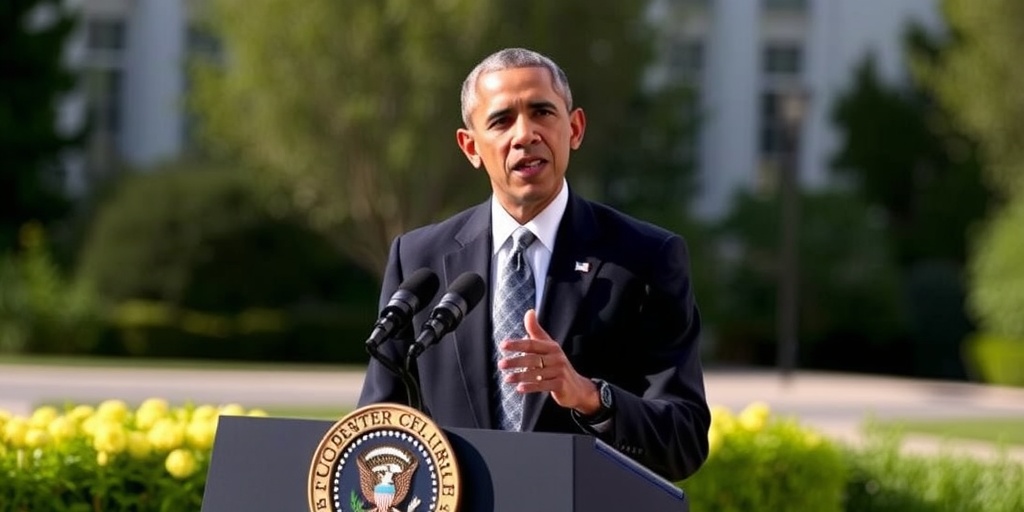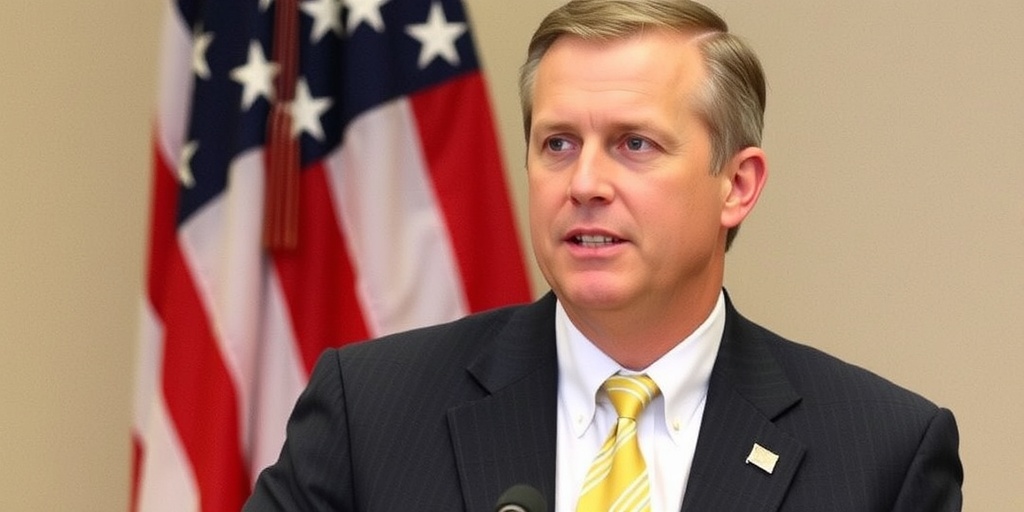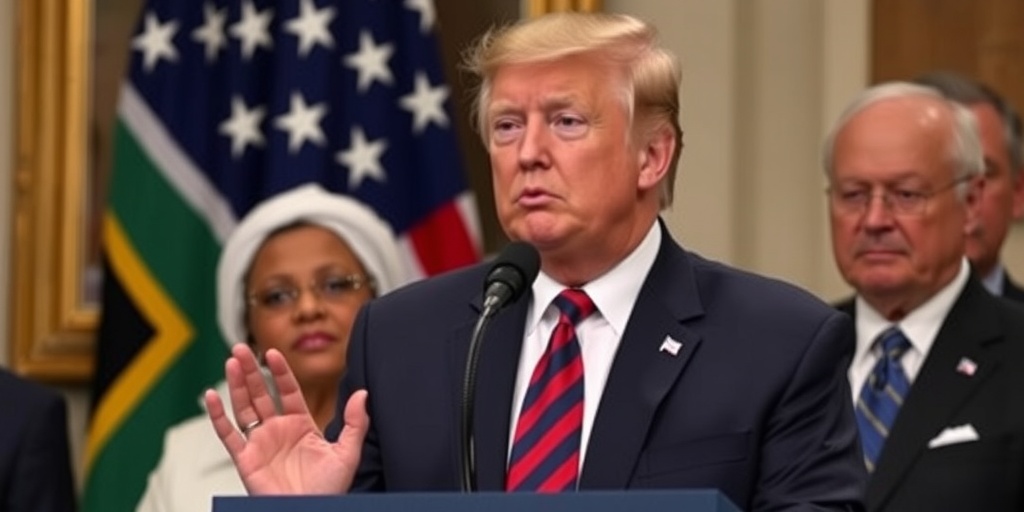Now Reading: Trump Issues Strongest Criticism of Russia, Threatens Secondary Tariffs
-
01
Trump Issues Strongest Criticism of Russia, Threatens Secondary Tariffs
Trump Issues Strongest Criticism of Russia, Threatens Secondary Tariffs

Trump Threatens Secondary Tariffs on Russian Oil Amid Ukraine Negotiations
In a significant escalation of his rhetoric towards Russia, former President Donald Trump has voiced strong criticism against President Vladimir Putin, indicating his willingness to impose “secondary tariffs” on Russian oil if negotiations for a cease-fire in Ukraine stall. In an interview on Sunday’s “Meet the Press,” host Kristen Welker shared insights from her conversation with Trump, revealing his growing impatience with the ongoing negotiations.
Trump articulated that tariffs ranging from 25 to 50 percent on oil exports from Russia could be implemented “at any moment.” He stated, “If Russia and I are unable to make a deal on stopping the bloodshed in Ukraine, and if I think it was Russia’s fault — which it might not be — but if I think it was Russia’s fault, I am going to put secondary tariffs on oil, on all oil coming out of Russia.” Historically, Trump has described secondary tariffs as levies targeting imports from nations that buy products from countries he has sanctioned through his foreign policy.
The former president’s remarks are particularly noteworthy given his past attempts to align himself with Putin, despite the United States’ steadfast support for Ukraine since Russia’s full-scale invasion over three years ago. During his tenure, Trump had often refrained from specifically attributing the initiation of the conflict to Russia. He controversially labeled Ukrainian President Volodymyr Zelensky as a “dictator” while refraining from making similar claims about Putin, asserting that Zelensky was uninterested in achieving peace.
Additionally, Trump’s remarks underscore his intent to utilize tariffs as a tool to compel other nations to comply with both his domestic and foreign policy objectives. In the same conversation with Welker, he expressed his willingness to consider imposing secondary tariffs on Iran if that nation fails to reach a satisfactory agreement concerning its nuclear program.
Voice tinged with frustration, Trump expressed his anger towards Putin for questioning Zelensky’s credibility and suggesting the need for new leadership in Ukraine. He articulated that such statements could impede progress in negotiations and prolong the conflict, stating, “New leadership means you’re not going to have a deal for a long time, right?”
While Russia and Ukraine recently consented to a limited truce, this agreement has not met the aspirations of a complete halt to hostilities desired by the Trump administration and Ukraine’s allies. The fragile cease-fire remains in question, as Russia continues to demand concessions, and Ukraine shows skepticism regarding the potential adherence to any truce.
Concerning the negotiations surrounding Iran’s nuclear capabilities, Trump remarked that officials from both nations were engaged in discussions, but intimated that he was prepared for military action if diplomatic and economic approaches fail to yield results. “If they don’t make a deal,” he said, speaking about Iran, “there will be bombing. It will be bombing the likes of which they have never seen before.”
Earlier this month, Trump reached out to Iran’s Supreme Leader, Ayatollah Ali Khamenei, proposing direct talks aimed at curbing Iran’s advancing nuclear ambitions. In this correspondence, Trump expressed a preference for diplomatic solutions rather than military intervention.
The suggestion of implementing secondary tariffs against Russian and Iranian oil now represents another dimension of Trump’s strategy to apply economic pressure on nations through tariffs related to their dealings with other countries. Just last week, he issued an executive order aimed at enforcing tariffs on nations purchasing Venezuelan oil, characterizing the regime in Venezuela as having “purposefully and deceitfully” infiltrated the United States with criminals and murderers.
These new tariffs on buyers of Venezuelan oil were labeled “secondary tariffs” by Trump, echoing the terminology of “secondary sanctions” which involve penalties imposed on third parties that engage in trade with countries under sanctions, giving rise to questions regarding enforcement and the feasibility of executing such measures.
Trade and sanctions experts have raised concerns regarding the effectiveness of existing secondary sanctions applied to nations like Russia and Iran, doubting the United States’ ability to implement additional tariff-based penalties successfully. The potential ramifications of Trump’s latest threats remain uncertain, as the international community continues to navigate a complex landscape of diplomatic relations and economic sanctions.
As negotiations evolve and the geopolitical landscape shifts, the decisions made by Trump, should he re-enter the political arena, could significantly impact both domestic policy and international relations moving forward.
Stay Informed With the Latest & Most Important News
Previous Post
Next Post
-
 01New technology breakthrough has everyone talking right now
01New technology breakthrough has everyone talking right now -
 02Unbelievable life hack everyone needs to try today
02Unbelievable life hack everyone needs to try today -
 03Fascinating discovery found buried deep beneath the ocean
03Fascinating discovery found buried deep beneath the ocean -
 04Man invents genius device that solves everyday problems
04Man invents genius device that solves everyday problems -
 05Shocking discovery that changes what we know forever
05Shocking discovery that changes what we know forever -
 06Internet goes wild over celebrity’s unexpected fashion choice
06Internet goes wild over celebrity’s unexpected fashion choice -
 07Rare animal sighting stuns scientists and wildlife lovers
07Rare animal sighting stuns scientists and wildlife lovers













